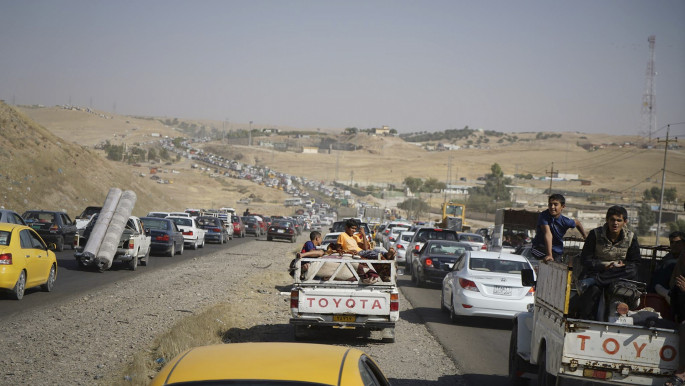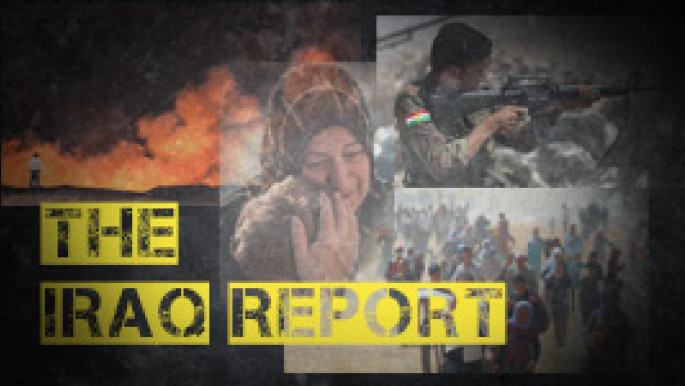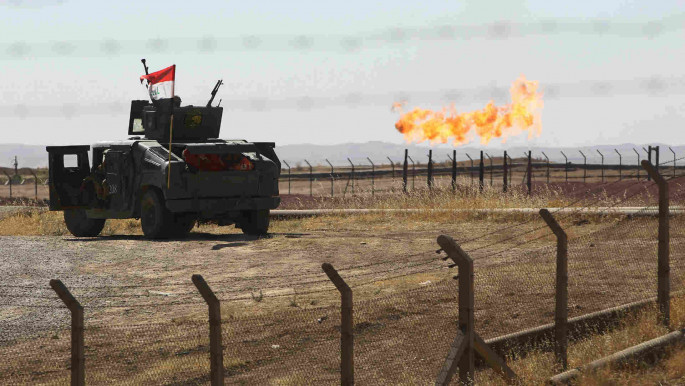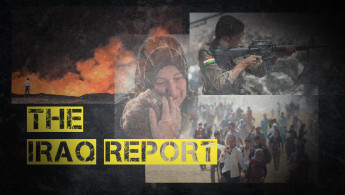The Iraq Report: Loss of Kirkuk torpedoes Kurdish independence
Click here to receive The Iraq Report each week in your inbox
In less time than it took for Iraqi Kurds to vote on their independence referendum held last month, the Iraqi military and allied Shia Islamist militias took Kirkuk from them in a series of military and diplomatic moves aided extensively by Iran. In what was almost a classic game of divide and conquer, Iran and its proxies managed to split Kurdish ranks politically before militarily moving in, facing little, if any, resistance.
Although it has been almost a month since the military build-up and political storm brewing around the independence vote began, the Kurdistan Regional Government’s loss of Kirkuk and other territories has some analysts considering the extent of US involvement, and how Iran may have outplayed Uncle Sam in Iraq once again.
The IRGC leans on PUK to split Peshmerga
While Iraqi Prime Minister Haider al-Abadi is keen on making the recapture of Kirkuk appear to be his victory, there are indications that suggest that his path to winning back the disputed city was paved by Iran and its proxies in the Popular Mobilisation Forces.
On Friday, US President Donald Trump refused to certify the Iran nuclear deal that took years to negotiate and would, on the face of it, put a halt to Iranian activity to acquire nuclear weapons. Trump had long been an ardent critic of the Obama-era agreement, denouncing it as a “one-sided deal” that benefited Tehran while making the US appear weak. Trump also took the first steps towards designating the entirety of Iran’s Islamic Revolutionary Guard Corps a “terrorist organisation”.
Less than two days later, IRGC Quds Force commander Qassem Soleimani was in the northern Iraqi city of Suleimaniyah holding talks with KRG President Masoud Barzani’s rivals in the Patriotic Union of Kurdistan – the party of the late Jalal Talabani, who died earlier this month. Although it is unclear precisely what mixture of threats and incentives were used on the PUK’s leadership, what is clear is that Soleimani was successful in having them order their men in the Peshmerga to abandon their posts.
PUK Peshmerga units withdrew from Tuz Khurmatu, but it seems IRGC pressure was active even before then - three days before the offensive, Shia militias moved into Qasbat al-Bashir, 20 kilometres south of Kirkuk without a single shot being fired by the Peshmerga. This was an area of PUK responsibility, and the fact that they handed over bases and key approach routes to Kirkuk – often dubbed the “Jerusalem of the Kurds” – demonstrates that the image oft portrayed in the media of a united Kurdish polity is merely a myth.
 |
| Both lanes on the highway heading out of Kirkuk towards Suleimaniyeh were rammed with people fleeing the city. Roads were gridlocked for 15 hours on Monday [AMYKMedia/TNA] |
The assault on Kirkuk
Another myth laid bare was the supposed military effectiveness of the Kurdish fighters, who were frequently lauded by US generals and the media as being the “most effective fighters on the ground” against the forces of the Islamic State group.
While there can be no doubt that the Peshmerga saw great success against IS – even successfully defending Kirkuk against them after the Iraqi army fled in 2014 – these successes were certainly assisted by overwhelming US and coalition air support. As Kirkuk demonstrated, without coalition air power, the Peshmerga who did not abandon their posts remained in static defensive positions, and were easily outflanked by IRGC-backed militias and the Iraqi military.
 |
|
| Catch up with our weekly round-up from Iraq |
The offensive itself began just before midnight on Sunday, with the first major manoeuvres beginning in the early hours of Monday morning. Iraqi forces quickly moved past their staging grounds and the bases that were surrendered by the PUK, and took oil fields and Tuz Khurmatu where Peshmerga commanders reported that Shia militias were looting homes and private property.
Iraqi forces then approached Kirkuk from the west, and quickly announced they had overrun the Kirkuk Air Base and the K1 military base just north of there. According to civilians inside the city, they could hear the sounds of sporadic gunfire and artillery shelling before the Iraqi military and Shia militias – particularly from the notorious Asa’ib Ahl al-Haq group – rolled into Kirkuk in American-made M1 Abrams tanks.
Before the fighting there were numerous announcements made by former Kirkuk governor Najmaldin Karim that Kirkuk’s people were arming themselves and ready to fend off any incursion by the federal government and IRGC-backed militias, yet nothing materialised. Most people either stayed at home, or joined the thousands of families fleeing Kirkuk who feared what the Shia militias – already notorious for a number of atrocities throughout Iraq – may do to them.
The stiff resistance expected from the Peshmerga did not materialise, and in fact video footage emerged on social media of people insulting Kurdish troops who were fleeing the city. It took less than 12 hours for the KRG’s flag to be torn down and replaced with the national Iraqi flag.
 |
| An Iraqi military vehicle stands guard at the Bai Hassan oil field, west of Kirkuk, on Tuesday. The two largest oil fields in the Kirkuk area are now in the hands of Baghdad's military [AFP] |
US agreement to a Kurdish rollback
Although the United States has not clearly outlined its position regarding the future of relations between Baghdad and the KRG, it has maintained that the independence referendum, which acted as a catalyst to events in Kirkuk, was “unilateral” and “unfortunate”.
The US, Britain, and a number of other major powers all attempted to convince the Kurds not to go ahead with the independence vote on 25 September, yet were rebuffed by the KRG, including Barzani’s party and the PUK.
Perhaps fearing further destabilisation in an already unstable country, and believing that the IS threat had receded enough for the US-instigated political process to resume its normal function, Washington appeared to be keen to reset Iraq to a position predating IS’ explosive emergence onto the scene in 2014.
As such, Washington has not interfered as Kirkuk was re-taken – even though evidence suggests blacklisted IRGC affiliates were leading the charge – nor has the US government intervened after the PMF took Sinjar on Tuesday, again without shots being fired. The Peshmerga have receded from much of Iraq’s so-called “disputed territories” and largely returned to their autonomous region’s borders.
However, and although it appears that the US wants to return to pre-2014 postures, things have moved on significantly since then. American influence has waned to a considerable degree, while Iran has continued to nurture and develop its tendrils of power throughout Iraq. Tehran can not only boast significant Shia Islamist proxies, but also has political leverage with Sunni groups such as the Iraqi Islamic Party, and also Kurds in the PUK.
This means that Iran can put forward its own “pluralist” version of Iraq, in which Tehran pulls the strings of the major ethno-sectarian groups via its chosen proxies. Meanwhile, Washington will have to play catch up with fewer assets on the ground than it has had since the Sunni tribal Awakening, or Sahwa in Arabic, in 2006.
Click here to receive The Iraq Report each week in your inbox
Follow us on Twitter: @The_NewArab



